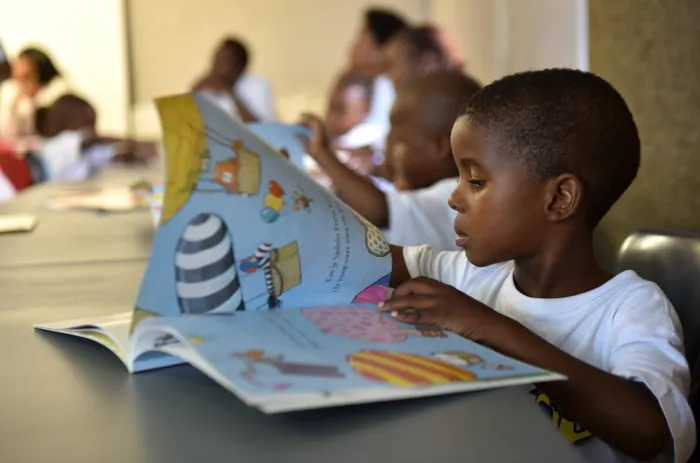Multilingual curriculum is effective in improving literacy skills, says educational psychologist

International Literacy Day will be celebrated on September 8. Educational psychologist Seago Maapola says introducing a multilingual education curriculum is urgent to tackle the country’s poor literacy skills plaguing South African schools, in particular Grade 4 learners. Picture: Oupa Mokoena
Amid the stark 81% of South African Grade 4 learners who cannot read for comprehension, the call for a multilingual curriculum is urgent as we head towards International Literacy Day on September 8.
The UN Educational, Scientific and Cultural Organisation’s (Unesco) theme for International Literacy Day is, “Promoting multilingual education: literacy for mutual understanding and peace”.
Citing the World Bank, educational psychologist Seago Maapola highlighted that learning poverty is prevailing, as the percentage of children up to the age 10 who struggle to read and comprehend basic text soared to 70% in low- and middle-income countries. Sub-Saharan Africa made up 86% of the total reading statistics.
Maapola therefore advocates for a multilingual learning curriculum to be initiated in Early Childhood Development (ECD) level, to cultivate the literacy skills of children in their early years of learning.
“Embracing multilingual and multicultural literacy empowers every child’s voice. There is a critical need to teach literacy at an Early Childhood Development level in children’s own languages so that the books they read are relatable,” said Maapola.
Maapola’s stance aligns with Basic Education Minister Siviwe Gwarube’s intentions to pilot a mother-tongue learning curriculum in South African schools in a bid to foster an inclusive education system, while challenging the grim literacy statistics plaguing the nation’s schools.
Maapola similarly maintains that a multilingual curriculum exceedingly improves learners’ literacy skills, their cognitive development is heightened and they are more likely to complete school.
“Multilingual education is vital; learners who receive instruction in their mother tongue during their early years perform better when they move over to English from Grade 4. When children read in their own language, they understand better. When they read or are read stories they can relate to, it boosts their confidence, their identity and their experience of education,” said Maapola.
A multilingual curriculum encourages and embraces cultural diversity and inclusivity, thus learners find a sense of belonging and identity, said Maapola.
She said a multilingual learning system would foster a reading culture among learners as they find themselves enjoying reading a book in their mother tongue.
“Literacy is one of the most basic tools for cultivating tolerance and peace. With increased interconnection, language barriers that cause misunderstanding, conflict, and disqualification can be lessened. A multilingual curriculum not only improves academic outcomes, but also fosters inclusivity and respect for cultural diversity, enhancing mutual understanding and respect,” said Maapola.
The 2030 Reading Panel sounded the alarm about the urgent need to reform the training of primary school teachers at higher learning institutions.
According to Maapola, the panel revealed that student teachers arrived at universities with poor language skills, and continued to receive inadequate training in teaching children how to read, which was an additional barrier to learners’ literacy skills.
Therefore, it is important that primary school teachers be given adequate training to improve learners’ comprehension skills at ECD level, foundation and intermediate phase.
In its efforts to promote multicultural education and reading culture among children and ECDs, Wimpy has launched its “Read with Wimpy” initiative.
Understanding the significant need for children to access books in their own language, the initiative provides underprivileged ECDs nationwide with a “Library in a Box” that includes a series of 50 folk tale books by local authors in all 11 official languages. The box also contains educational activity sheets that aid educators in teaching.
“Wimpy’s latest campaign effectively tackles the issue of limited access to multicultural and multilingual books, ensuring that children are provided with the resources necessary for reading,” said Maapola.
The Star
hope.mafu@inl.co.za
Mother-tongue curriculum key to curbing poor literacy skills in SA schools
Building on a foundation: Strategic priorities for South Africa’s new education administration
African languages are vital to tell Africa’s rich stories
Editorial: Mother tongue teaching a radical step
Stellenbosch University introduces Spanish to its curriculum
UKZN academic tasked with decolonising South African school curriculum